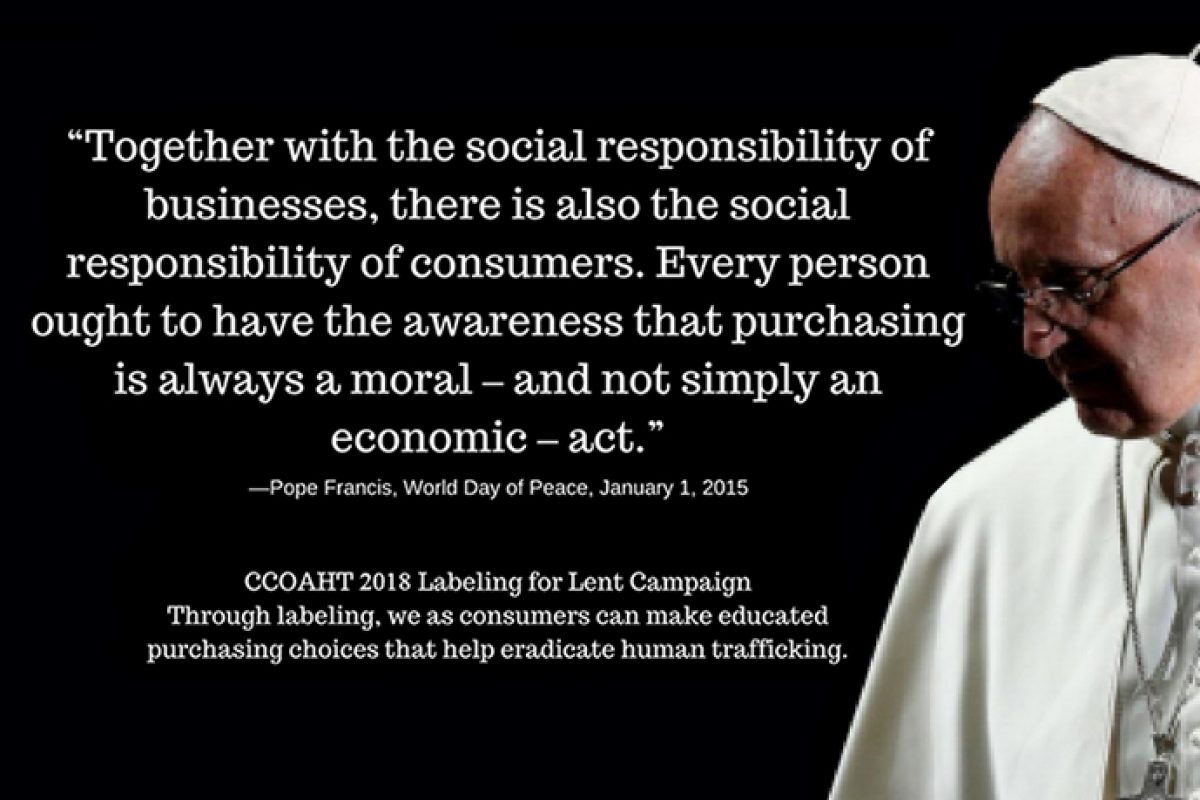Catholic Consumers Favor Slave-Free Seafood Label

A coalition of Catholic organizations is advocating for seafood to be labeled “slave-free” to orientate consumers’ choices.
The U.S. Coalition of Catholic Organizations Against Human Trafficking (CCOAHT) is asking seafood producers, distributors and retailers to make public, through packaged product labeling, their efforts to fight human trafficking in their product supply chains.
According to CCOAHT, tens of thousands of people are exploited in the seafood industry. This exploitation occurs through abusive recruitment practices as well as slavery at sea and in seafood processing plants.
CCOAHT believes that most consumers care about the supply chains of the products they buy and that given the opportunity, would prefer slave-free seafood. However, consumers are not currently receiving the information needed to make such moral purchasing decisions.
That is why the coalition trusts that a “slave-free” labeling would affect purchase choices, thus having a positive impact on working conditions in the seafood industry and ultimately helping eradicate human trafficking.
To prove their point, CCOAHT distributed a survey to its networks, asking consumers if slave-free labeling would affect their purchase decisions.
Over 2,200 people responded, of which 99% want companies to take steps to engage in ethical business practices, 98% want their packaged seafood to be labeled and 97% said labels would influence their purchasing decisions.
“As a follower of Jesus,” a survey participant said, “I feel it is vital that we care about our brothers and sisters, especially those who bring our food to our tables.” CCOAHT members will highlight survey data in upcoming dialogue with seafood supply chain shareholders.
“Catholics are becoming increasingly aware of the collective power they possess as consumers to press for positive change in the lives of those who catch our fish,” says Hilary Chester, Director of Anti-Trafficking at the U.S. Conference of Catholic Bishops (USCCB). “We are asking the seafood industry to do better. The companies that do so will be supported by consumers,” she adds.
CCOAHT is administered by the USCCB Migration and Refugee Services and consists of over 30 national and international agencies, including the International Catholic Migration Commission (ICMC) through its U.S. Liaison Office. ICMC Secretary-General Robert J. Vitillo is a founding member of the coalition.
Already in 2016, CCOAHT members networks mailed 15,000 postcards to US seafood retailers urging them to examine their supply chains and commit to products free of slave labor.
• To learn more about this issue, read the Associated Press’ Pulitzer Prize-winning investigative report from 2016 Seafood from Slaves.
• Tools to educate parishioners about the power of consumer responsibility to combat maritime trafficking this Lent may be requested from MRSTraff@usccb.org